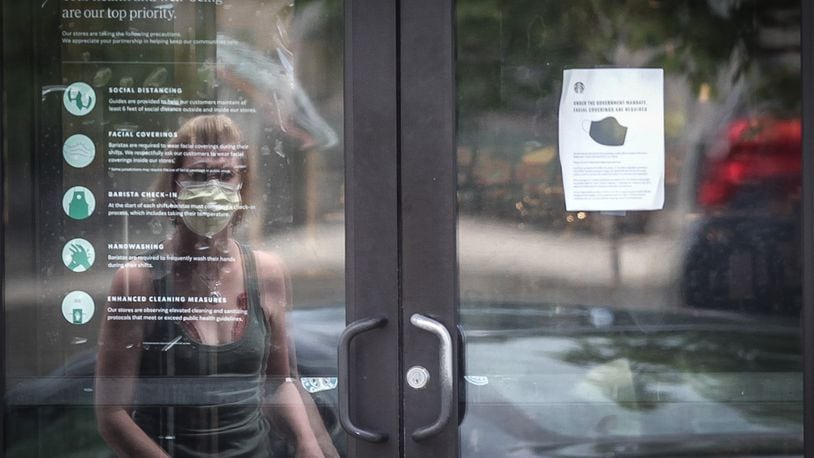The National Restaurant Association’s Restaurant Law Center, in partnership with with the national law firm Jackson Lewis P.C., developed guidance for restaurateurs to follow when dealing with confrontational customers who refuse to or are reluctant to wear masks.
First, the guidance addresses the claim that it is unconstitutional for a restaurant to require a diner to wear a mask when not eating or drinking: “Guests and employees have no constitutional free speech rights in a private business or workplace,” the association said. “The First Amendment to the U.S. Constitution protects an individual’s right to free speech from infringement by the U.S. Government — not a private business. Similarly, state constitutions do not create such rights. Thus, a restaurant can legally deny service to individuals that refuse to wear a mask for alleged Constitutional reasons.”
But what if a guest refuses to wear a mask because of a disability? That question required a bit more explanation from the restaurant association’s law center and the law firm:
“Title III of the Americans with Disabilities Act requires restaurants to provide equal enjoyment of goods and services to individuals with disabilities. If a guest has a medical or disability-related condition that may require an accommodation, then the restaurant must consider the reasonable accommodation it can offer the guest.”
“A guest must advise the business he/she needs an accommodation if the need for one is not obvious. A restaurant should not request medical documentation when a guest requests a public accommodation.”
“However, a restaurant need not accommodate a guest if doing so would impede the business’s ability to safely provide its goods and services. Under current Centers for Disease Control and Prevention guidance, allowing unmasked members of the public into business establishments creates a health and safety risk.”
“Moreover, COVID-19 is spread by persons who may be asymptomatic, and who possibly have no idea whether they carry the virus. As a result, guests are required to wear masks or other suitable face coverings (e.g., bandana, face shield, and the like) under state and local ordinances mandating masks.”
“Under these circumstances, businesses have a good-faith basis to not accommodate an unmasked member of the public. Although, no-contact shopping alternatives should be considered and communicated to the guest where a disability is involved, such as allowing for a curbside order.”
Here are some tips from the association’s law center if there is a fear of a violent confrontation: “Employees should not argue with guests who refuse to wear a mask and potentially escalate the situation. Employees should not attempt to apprehend resistant guests, block guests from entering or exiting the store, or physically force guests to leave. Employees should remain calm, discreetly call security or local law enforcement and allow the police to handle it.”
Restaurant owners are also advised to, “Assign the right person(s) to communicate the message. Staff have different skill sets; some are charming and disarming, while others are whizzes with numbers but have a gruff demeanor. The more pleasant the approach with non-compliant guests, the higher likelihood of gaining compliance.”
“Instead of being demanding with a guest who refuses to wear a mask, try a softer approach (e.g., ‘Wow, you must be having a tough day today. This whole COVID-19 situation has been hard on all of us. How can I convince you we all just want to get through the day healthy and ready for tomorrow?’). It may not always work, but this is about minimizing the issues when possible.”
Shanon Morgan — president of the Miami Valley Restaurant Association, which has no direct affiliation with the National Restaurant Association or its statewide membership organization, the Ohio Restaurant Association — said she has been hearing reports from Dayton-area restaurant owners of customer backlash against the statewide mask mandate.
“It’s important to remember that those rules are not coming from these individual restaurants,” Morgan said. “The restaurants are simply trying to comply with state guidelines.”
Those who do not want to wear a mask shouldn’t go out to eat at a restaurant right now, but should instead order carryout or delivery, Morgan said.
“It’s hard for me to understand how someone can chew out a 16-year-old employee who is just trying to do their job,” Morgan said. “Things are rough enough right now for restaurants. They do not need to be dealing with this.”
For a more in-depth look at this issue and how some local restaurants are dealing with it, watch for our upcoming story in the Dayton Daily News.
About the Author
